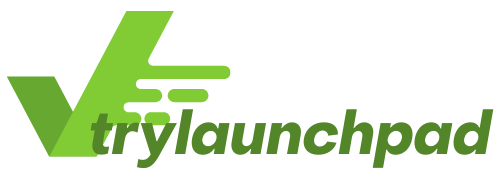As a software as a service (SaaS) company, communication with customers is key to maintaining a positive reputation and ensuring customer satisfaction. One essential tool for achieving this goal is a cloud phone system. In this article, we’ll explore why all SaaS companies need a cloud phone system and how it can benefit their business.
What is a Cloud Phone System?
A cloud phone system is a communication solution that allows users to make and receive phone calls over the internet. It’s hosted in the cloud, meaning there’s no need for on-premise hardware. Users can access the system through a web-based portal or mobile application, making it easy to manage and customize from anywhere.
Importance of a Cloud Phone System for SaaS Companies
- Improved Customer Communication
SaaS companies rely heavily on customer satisfaction to retain clients and drive business growth. A cloud phone system can help improve communication with customers in a variety of ways. For example, it allows for personalized interactions through features like caller ID, call routing, and customized greetings. Additionally, it provides a central hub for all customer communication, making it easier to track and manage customer interactions.
- Cost-Effective Solution
A cloud phone system can be a cost-effective solution for SaaS companies. Traditional phone systems require significant investment in hardware and maintenance, whereas a cloud phone system eliminates the need for on-premise equipment. This can result in significant cost savings, especially for small or growing companies.
- Scalability
SaaS companies often experience rapid growth, and a cloud phone system can easily scale with them. As the number of users or locations increases, the system can be quickly expanded to accommodate new needs. Additionally, cloud phone systems are highly flexible, allowing for easy customization and integration with other communication tools.
- Data and Analytics
Cloud phone systems provide valuable data and analytics that can help SaaS companies make informed decisions. For example, call volume and duration data can help identify peak call times and areas for improvement. Additionally, call recordings and monitoring can be used to train new employees and ensure quality control.
|
Without a Cloud Phone System |
With a Cloud Phone System |
|
| Customer Communication | Limited interaction channels with customers, difficulty in tracking and managing customer interactions | Personalized interactions with customers, a central hub for all customer communication, easier to track and manage customer interactions |
| Cost | Significant investment in hardware and maintenance costs | Eliminates the need for on-premise equipment, resulting in significant cost savings |
| Scalability | Limited scalability options | Easily scalable with the number of users and locations |
| Data and Analytics | Limited data and analytics | Valuable data and analytics that can help SaaS companies make informed decisions |
As you can see, a cloud phone system can make a significant difference for SaaS companies, improving customer communication, reducing costs, increasing scalability options, and providing valuable data and analytics.
Key Features of a Cloud Phone System
When selecting a cloud phone system, it’s important to evaluate key features and choose a solution that meets your business needs. Here are some of the most important features to consider:
- Virtual Receptionist
A virtual receptionist can help improve the customer experience by providing customized greetings and call routing options. It can also help filter out unwanted calls and improve efficiency.
- Call Forwarding and Routing
Call forwarding and routing allows users to easily redirect calls to different locations or devices. This is especially useful for remote workers or employees who need to work from different locations.
- Call Recording and Monitoring
Call recording and monitoring provides valuable data and analytics that can be used for training and quality control. It can also be used to resolve disputes or provide evidence in legal cases.
- Auto-Attendant
An auto-attendant can provide automated responses to common customer inquiries, reducing the workload on employees and improving efficiency.
- Voicemail to Email Transcription
Voicemail to email transcription automatically transcribes voicemails and sends them to a designated email address. This feature is particularly useful for employees who are frequently on the go or for those who have difficulty listening to voicemails.
- Conference Calling
Conference calling allows multiple parties to participate in a single call, improving collaboration and communication between teams and customers.
How to Choose the Right Cloud Phone System
When choosing a cloud phone system, there are several factors to consider. Here are some steps you can take to make an informed decision:
- Determine Business Needs
Start by assessing your business needs. Consider the size of your company, the number of employees, and the level of customer communication required.
- Evaluate Features
Evaluate the features offered by each cloud phone system. Determine which features are most important for your business and which systems offer those features.
- Consider Integrations
Consider which communication tools your company is already using and look for a cloud phone system that can integrate with those tools.
- Compare Pricing
Compare pricing plans and choose a system that fits your budget. Consider the long-term cost savings of a cloud phone system versus a traditional phone system.
Conclusion
A cloud phone system is an essential tool for SaaS companies that want to improve customer communication, reduce costs, and scale with ease. By choosing the right system and evaluating key features, SaaS companies can enhance their communication capabilities and improve their bottom line.
FAQs
1. What is a cloud phone system?
A cloud phone system is a communication solution that allows users to make and receive phone calls over the internet.
2. Why do SaaS companies need a cloud phone system?
SaaS companies need a cloud phone system to improve customer communication, reduce costs, and scale with ease.
3. What are the key features of a cloud phone system?
Key features of a cloud phone system include a virtual receptionist, call forwarding and routing, call recording and monitoring, auto-attendant, voicemail to email transcription, and conference calling.
4. How do you choose the right cloud phone system?
To choose the right cloud phone system, determine your business needs, evaluate features, consider integrations, and compare pricing.
5. How can a cloud phone system benefit my SaaS company?
A cloud phone system can benefit your SaaS company by improving customer communication, reducing costs, and providing valuable data and analytics.


Leave a Reply